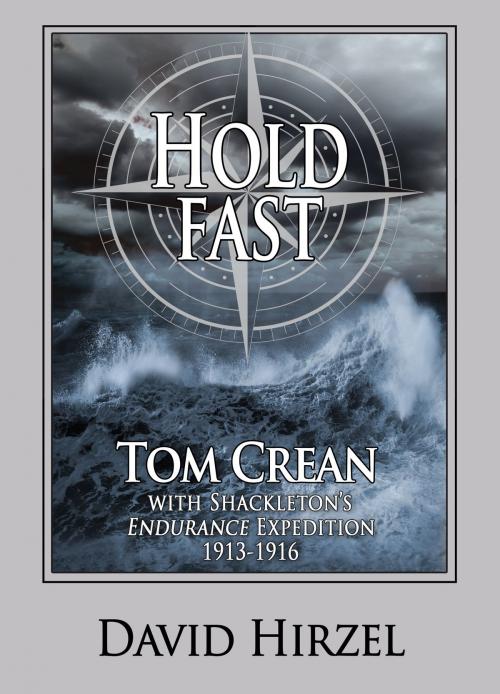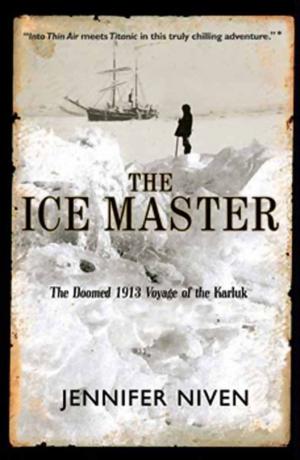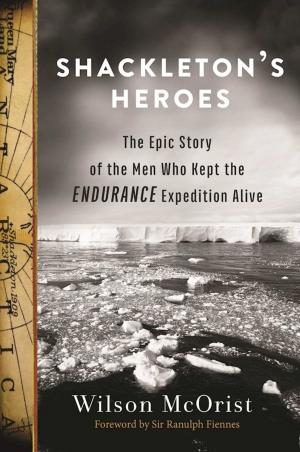| Author: | David Hirzel | ISBN: | 9780988701939 |
| Publisher: | David Hirzel | Publication: | March 9, 2013 |
| Imprint: | Smashwords Edition | Language: | English |
| Author: | David Hirzel |
| ISBN: | 9780988701939 |
| Publisher: | David Hirzel |
| Publication: | March 9, 2013 |
| Imprint: | Smashwords Edition |
| Language: | English |
There are more famous names than Tom Crean’s from the “heroic age” of Antarctic exploration, but there are few stories as compelling as his. The Antarctic is a harsh place of bitter cold and darkness, where only the strong and resourceful can hope to survive. Crean was such a man. Had he weakened and failed somewhere along the way of his adventurous life, the lives of all might well have been lost, and their stories remained untold.
He left no diary or book; his few letters speak modestly of his exploits, if at all. Hold Fast tells the story of a common man in uncommon circumstances, who met every challenge as it came with steadfast purpose. If he knew fear, he never showed it. He left England with Shackleton’s “Endurance” expedition in August 1914, expecting to be the first to cross the Antarctic continent and come home to lasting fame.
Things didn’t work out according to plan. From the moment his ship “Endurance” was caught in the ice and crushed, throughout the long sojourn of the shipwrecked sailors on the floating ice floe, he took every setback with casual aplomb, as though he did this sort of thing every day. When twenty-eight men were forced to take to sea in three small boats, he took the helm of one of them. To save those men, Crean was one of six who crossed the stormy southern ocean in an open boat, to land on an inhospitable shore.
The journey was not over yet. Three men must cross the glaciers guarding the forbidding interior of South Georgia to get help. Tom Crean was one of them. We share his trials as they happen—the thrill of discovery, the danger of the sea-ice, the terror of extreme isolation.
Tom Crean was not most renowned of the explorers during those early years of Antarctic discovery. For that, the palms go to Shackleton, Amundsen, and Scott, with the names of other leaders not far behind. Other men, better educated and connected, would publish the stories of hardship and adventure that astonished the world. Crean’s name is occasionally mentioned in these works, as it should be; his was a distinguished career of service, not as a leader, but as a seaman.
His story is not one of trial and privation leading to a tragic end, because without one man’s endurance and unflinching resolve in the face of hopeless adversity, there would be no survivors. The familiar names belong to those who claimed to lead, but those who lead are nothing without those who come a few steps behind, hauling the gear, pitching the camp, walking the long walk, steadfast, enduring. Without them, there would be no leaders. There would be no survivors, and no story to be told.
There are more famous names than Tom Crean’s from the “heroic age” of Antarctic exploration, but there are few stories as compelling as his. The Antarctic is a harsh place of bitter cold and darkness, where only the strong and resourceful can hope to survive. Crean was such a man. Had he weakened and failed somewhere along the way of his adventurous life, the lives of all might well have been lost, and their stories remained untold.
He left no diary or book; his few letters speak modestly of his exploits, if at all. Hold Fast tells the story of a common man in uncommon circumstances, who met every challenge as it came with steadfast purpose. If he knew fear, he never showed it. He left England with Shackleton’s “Endurance” expedition in August 1914, expecting to be the first to cross the Antarctic continent and come home to lasting fame.
Things didn’t work out according to plan. From the moment his ship “Endurance” was caught in the ice and crushed, throughout the long sojourn of the shipwrecked sailors on the floating ice floe, he took every setback with casual aplomb, as though he did this sort of thing every day. When twenty-eight men were forced to take to sea in three small boats, he took the helm of one of them. To save those men, Crean was one of six who crossed the stormy southern ocean in an open boat, to land on an inhospitable shore.
The journey was not over yet. Three men must cross the glaciers guarding the forbidding interior of South Georgia to get help. Tom Crean was one of them. We share his trials as they happen—the thrill of discovery, the danger of the sea-ice, the terror of extreme isolation.
Tom Crean was not most renowned of the explorers during those early years of Antarctic discovery. For that, the palms go to Shackleton, Amundsen, and Scott, with the names of other leaders not far behind. Other men, better educated and connected, would publish the stories of hardship and adventure that astonished the world. Crean’s name is occasionally mentioned in these works, as it should be; his was a distinguished career of service, not as a leader, but as a seaman.
His story is not one of trial and privation leading to a tragic end, because without one man’s endurance and unflinching resolve in the face of hopeless adversity, there would be no survivors. The familiar names belong to those who claimed to lead, but those who lead are nothing without those who come a few steps behind, hauling the gear, pitching the camp, walking the long walk, steadfast, enduring. Without them, there would be no leaders. There would be no survivors, and no story to be told.















